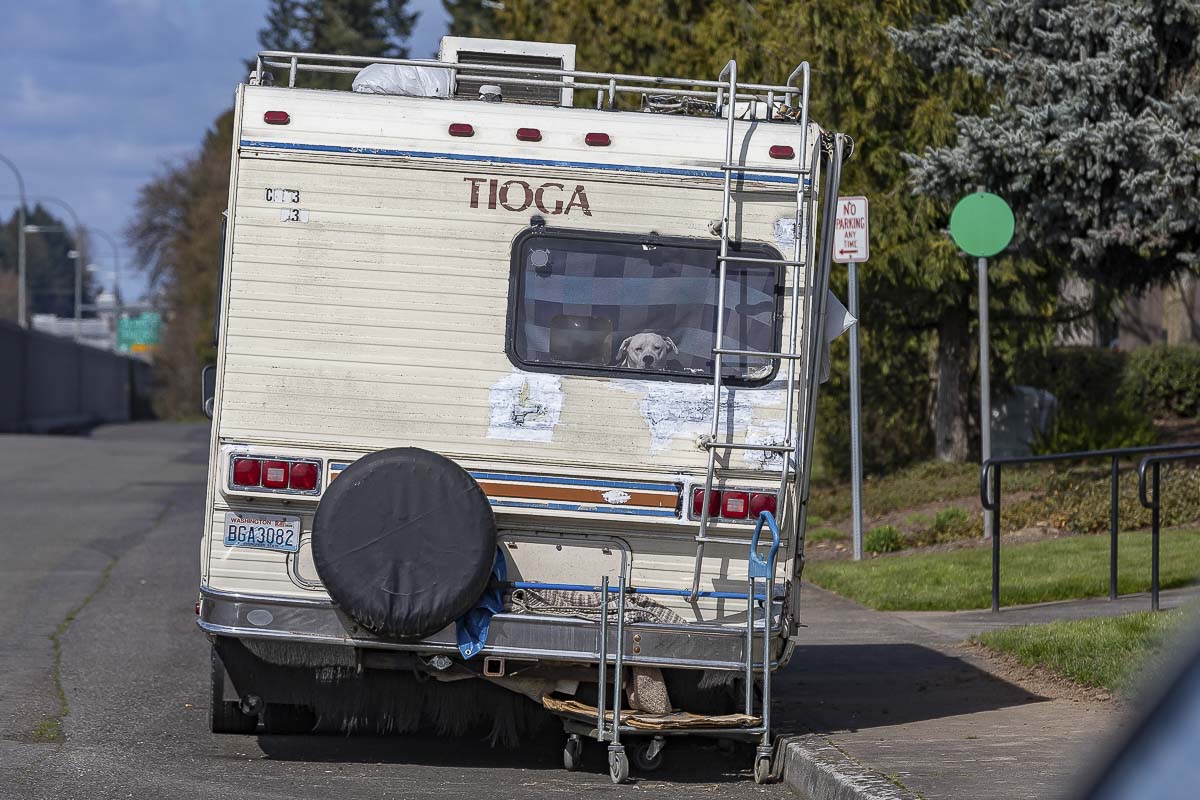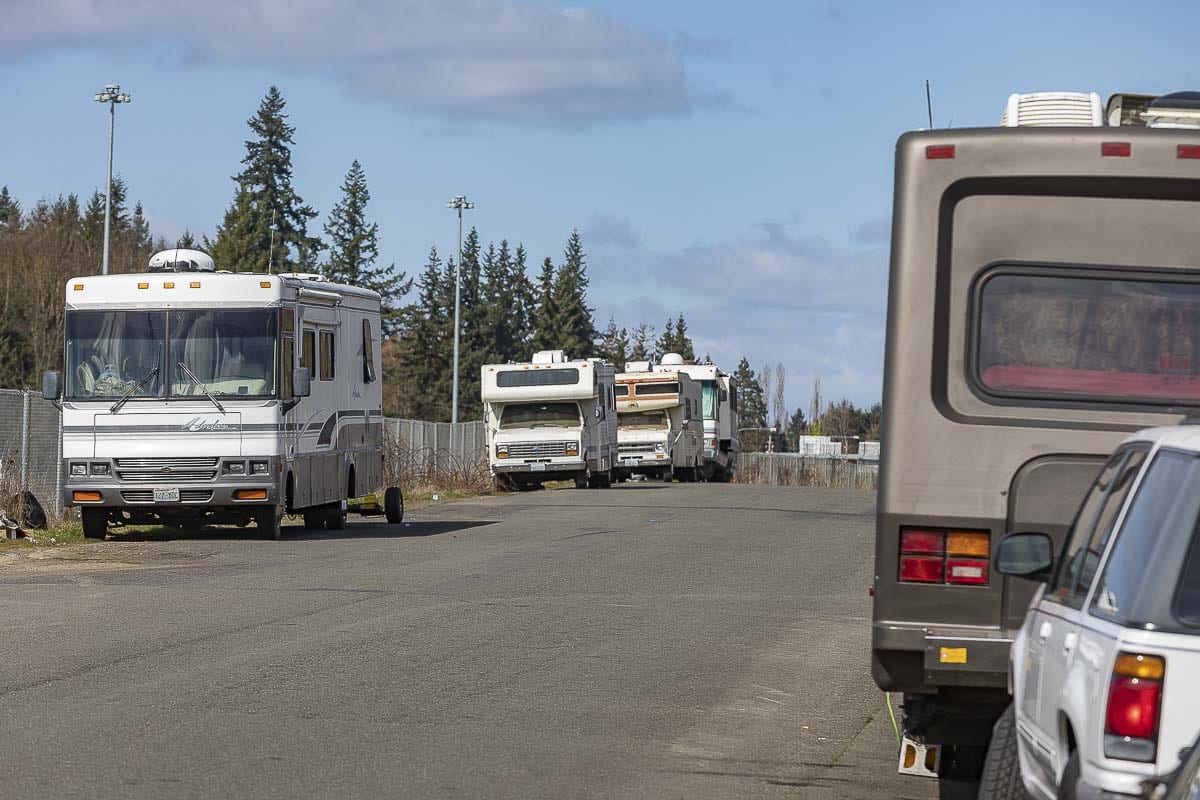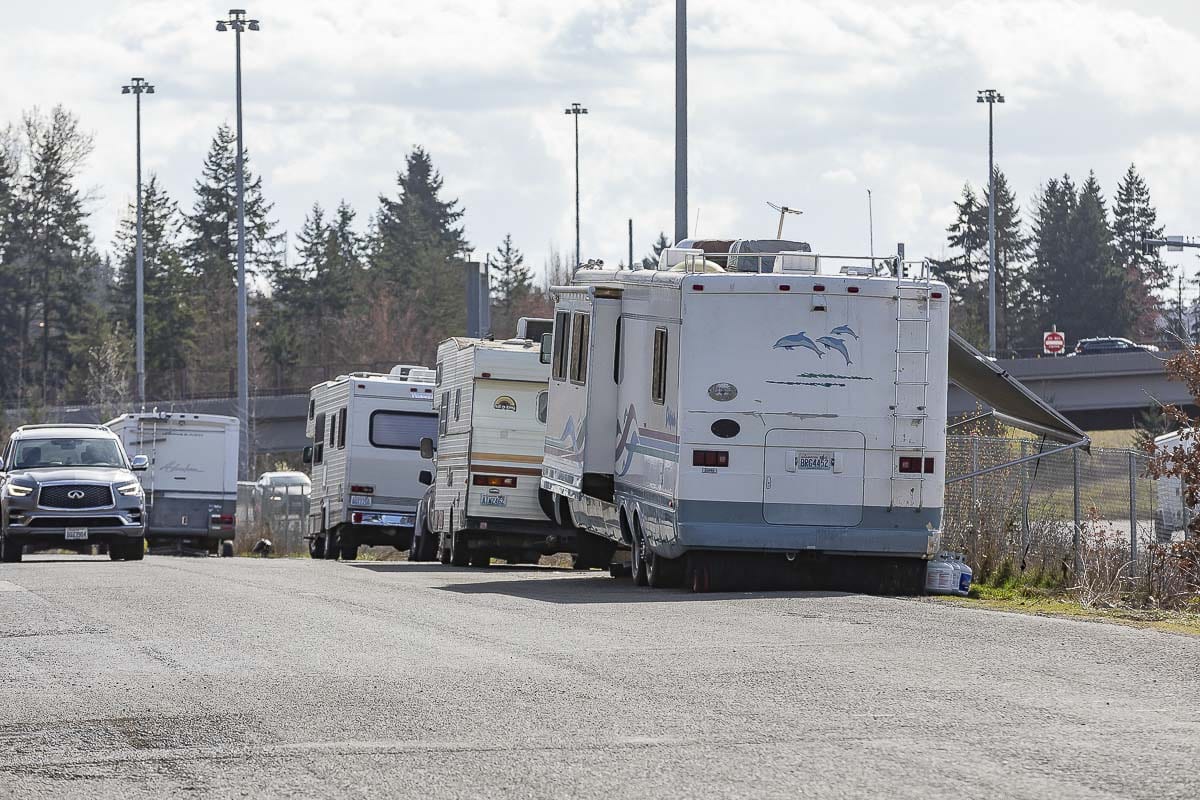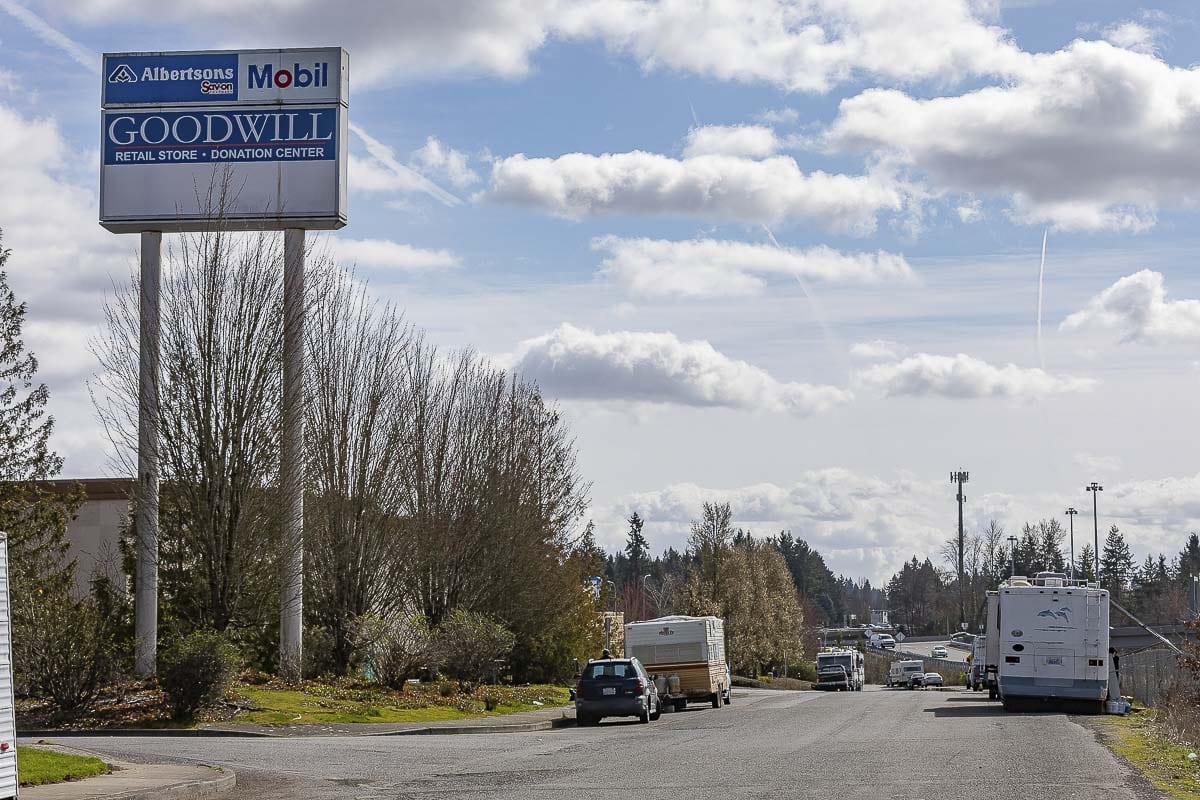The changes will require permits for any RV on a public street longer than 24 hours
CLARK COUNTY — Starting March 20, the Clark County Sheriff’s Office will get a new tool to deal with the increasing number of recreational vehicles parked along public roads.

Clark County Council on Tuesday approved parking code changes that will make it more difficult for people to camp along public streets in RVs.
“This is really kind of a safety issue for a number of subdivisions that are having these RVs and cars, etc parked on side roads,” said Council Chair Eileen Quiring before the vote.
Previously, RVs could remain on the side of a county road up to three days, but there were no regulations about how far they had to move to reset that clock.
Increasingly, council members have heard from constituents fed up with campers popping up along their roads, often staying far beyond the current limit, so they began discussions with Code Enforcement Director Mitch Nickolds about how to deal with the issue.
“We have a lot of homeowners that feel like their neighborhoods are being invaded by people they don’t know, parking on their street and creating a mess,” said Councilor Gary Medvigy.
“This has been an ongoing, long conversation, and I know that the folks in the neighborhoods have had some real struggles over the past number of months,” added Councilor Julie Olson, whose district includes Hazel Dell and Salmon Creek, where some of the largest transient RV camps have popped up.

Under the newly adopted code, regular vehicles can remain along a public road up to 24 hours. Recreational vehicles will require a permit from the owner of the property next to where they are parked.
That permit, which will cost $10, will be good for up to seven days, and can be renewed one time for up to another week. After that time, the vehicle cannot remain in the same area without potentially incurring a fine.
“The idea here being that this is for people that are visiting,” said Lindsey Shafar, a policy analyst for the county, “that maybe have friends or family that are coming to visit and are going to stay in an RV for the duration of their visit.”
Shafar also noted that RVs will need to be self-sustaining. No generators, and no extension cords, no awnings or furniture outside. Sewage would need to be disposed of at legal dumping sites, and no long-term camping will be allowed.
The council did add two amendments. One will allow a 24-hour grace period, aimed at people parking their RVs next to their property in order to load and unload for a trip.
The other amendment will allow property owners to simply certify that they own the property the RV is parked next to. If questions are raised, they may need to provide proof of ownership, but the work of verifying ownership would have fallen to the sheriff’s office, and made the permitting process a money losing proposition.
Eventually, Clark County Manager Shawn Henessee said people should be able to both apply for a permit online, and also print it out. Initially, however, they will need to come to the county building to obtain the permit or renew it.

Medvigy noted the system is likely to need some improvements and adjustments. One complaint the county received involves a single mother and a young child living in the vehicle.
“I’m hoping to test the system in that regard and see if our Council for the Homeless and some of our nonprofits can react to that, and ensure that this person has a home,” Medvigy said, “or at least a way towards a home. So we’re just not moving people around as the RV parks get crowded.”
Enforcement would be based on complaints, the council noted, so if neighbors have no problem with vehicles parked along their road, they’ll likely be able to remain there.
Once a complaint is received, a sheriff’s office deputy would respond and issue a 24-hour notice. If a permit isn’t obtained, the sheriff could potentially seek to have the RV towed and impounded.

Fines, if issues, would likely increase based on the number of infractions.
“I think we should be open as this ordinance goes into effect to see any unintended consequences and revisit it at that point,” said Quiring.
The county assigned $150,000 in this year’s budget to help with disposal of derelict RVs, which often require hazardous waste mitigation.
Council is also currently working on draft proposals addressing the removal of property from homeless encampments, and is hoping to begin conversations soon with the city of Vancouver around creating a joint committee on homelessness and housing to combat the complex issues.




